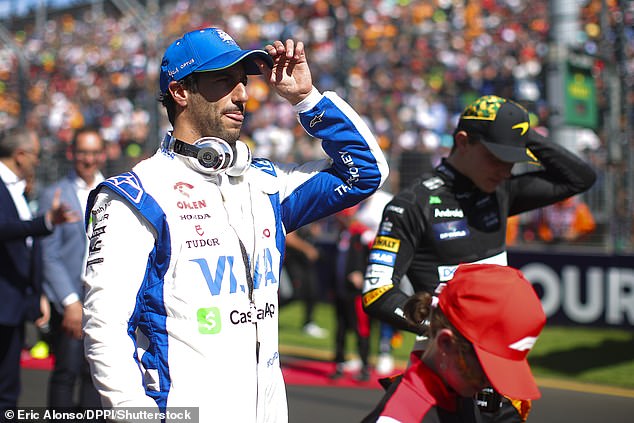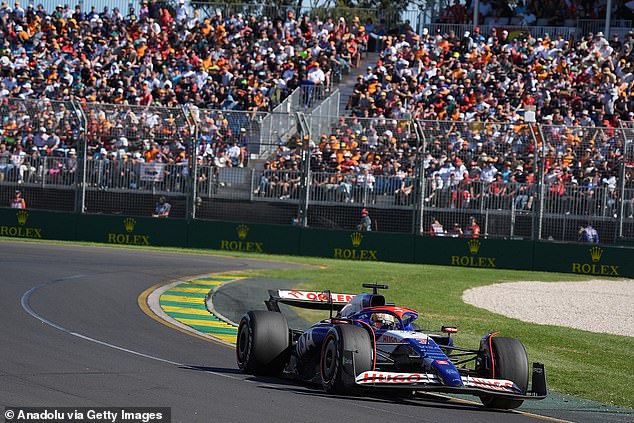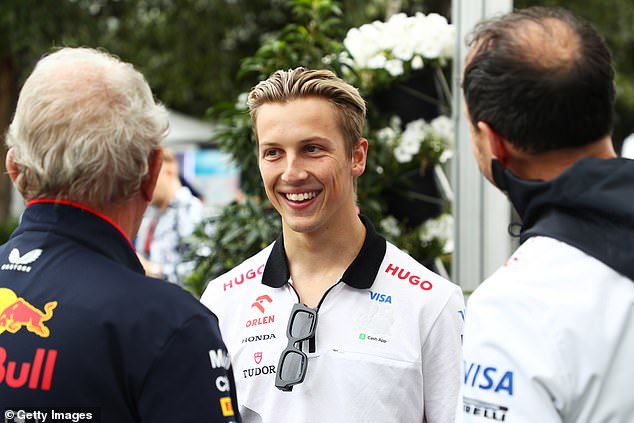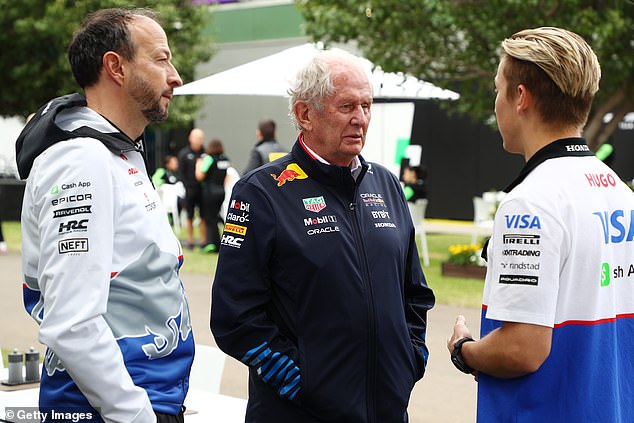- Daniel Ricciardo supposedly has two races to save his career
- The Australian has had a slow start to the new F1 season
- Liam Lawson is reportedly set to replace him
<!–
<!–
<!–
<!–
<!–
<!–
Daniel Ricciardo has been awarded two races to save his Formula One career, a new report claims.
According to the NZ Herald, Red Bull boss Helmut Marko is lining up New Zealand driver Liam Lawson to replace Ricciardo should he fail to achieve positive results in the next two Grands Prix in Japan and China.
Lawson drove Ricciardo’s AlphaTauri when he broke his wrist last year and gave a good account of himself, leading to the youngster taking the seat full-time.
As it was, Red Bull kept faith in Ricciardo to drive for their junior team, with the Australian hoping to put together a strong pitch to eventually replace Sergio Perez with the world champions.
But a series of disappointing performances in which he has been overshadowed by teammate Yuki Tsunoda has seen pressure mount on the fan favourite.

Daniel Ricciardo supposedly has two races to save his Formula One career


The Australian has suffered a bad start to his Formula One campaign
The New Zealand media claims that “if Ricciardo fails to improve in the next two Grands Prix in Japan and China respectively, Red Bull will make a swap that will see Lawson likely settle into the Racing Bulls (RB) seat for Miami and remain with the team for the rest of the season.”
The report adds that Lawson is also seen as the best long-term replacement for Perez at Red Bull, meaning he would be Max Verstappen’s partner from 2025.
Marko said that before the Australian Grand Prix, Marko said that Ricciardo was “too slow” and had to “come up with something soon.”
He qualified P18 at Albert Park and finished the race in P12, while Tsunoda finished in the points.
“I felt like I had put the frustration aside for today,” Ricciardo said after the race. ‘In a way I knew that what’s done is done and I tried to make the most of today.
“It’s good that there were moments in the race where I had pace and was able to show, ‘it’s okay, I can still do some good stints there.'” It was still good to get the laps.”
He finished 13th in Bahrain and 16th in Jeddah, but insists he has not lost faith in his ability to rediscover his magic.


New Zealander Liam Lawson would be on the list to replace him


Red Bull boss Helmut Marko has identified Lawson as a future star
“I definitely think I can do it,” he said. “I wouldn’t say there is panic. “I would have loved this season to have started better, but we will continue to investigate.”
He added: “It’s not like we’ve changed everything and suddenly this car suits Yuki (Tsunoda) and not me. I certainly don’t feel like it’s anything like that.
‘I think we’ll find something. I thought it would have been this weekend. Maybe it’s the next thing, and if it’s not the next thing, we’ll keep going until it happens.
‘It will happen.’
Christian Horner said of Ricciardo’s form: “He’s a big kid, he’ll pick himself up.”
“F1 can be very lonely for a driver, so a little encouragement is never a bad thing.”
